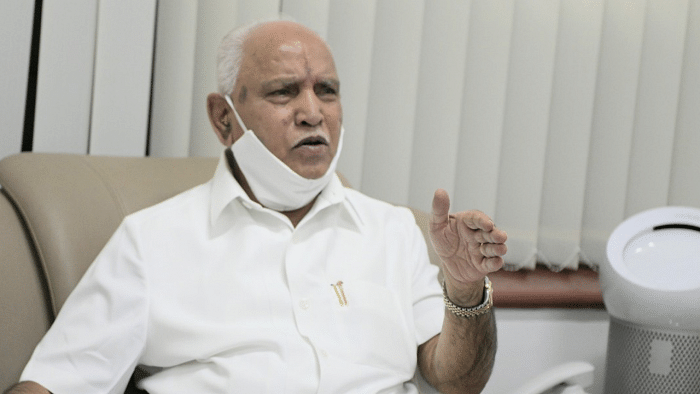
Karnataka Chief Minister BS Yediyurappa on Saturday urged his Tamil Nadu counterpart MK Stalin to not oppose the Mekedatu project “in the right spirit” and offered to hold a bilateral meeting between both states to address any issues.
The project, which envisages a balancing reservoir across the Cauvery river at Mekedatu, aims to cater to the drinking water needs of the Bengaluru metropolitan region. Tamil Nadu has opposed this.
“...the implementation of the said project in no way affects the interests of the farming communities of Tamil Nadu,” Yediyurappa stated in his letter to Stalin.
Read more: Centre delaying nod to Mekedatu project: HDK
Yediyurappa pointed out that Tamil Nadu had moved the Supreme Court against the project. Karnataka, too, has filed an application before the Centre seeking approval for Terms of Reference (ToR) to conduct Environmental Impact Assessment (EIA) studies, he said.
Yediyurappa further stated that Tamil Nadu itself had taken up two hydro-power projects at Kundah and Sillahalla in the Bhavani sub-basin of Cauvery. “The Government of Tamil Nadu has neither entered into any kind of negotiations nor secured consent from Government of Karnataka for the above projects in Cauvery basin,” Yediyurappa stated.
“In these circumstances, I am to state that it would be in the interest of all concerned and to have a better relationship between the state of Karnataka and Tamil Nadu, if the Tamil Nadu government in the right spirit would not oppose the implementation of the project,” Yediyurappa said. “In order to address issues, if any, it is suggested that a bilateral meeting could also be held in the presence of concerned officials to clear all apprehensions.”
The Mekedatu project was first announced in 2013 and it is estimated to cost Rs 9,000 crore.
According to Yediyurappa, who also holds the water resources portfolio, the Mekedatu balancing reservoir-cum-drinking water project will regulate the flow of water to Tamil Nadu as per the final orders of the Cauvery Water Dispute Tribunal (CWDT) and the Supreme Court. This will be used to generate 400 MW power and utilize 4.75 tmc water for Bengaluru. “Overall, this project would immensely benefit both the states.”
